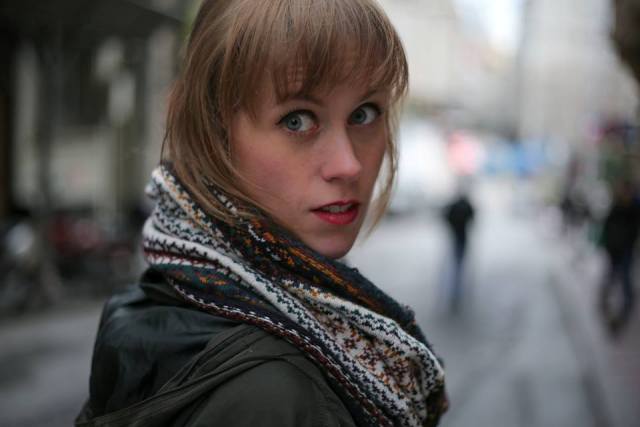The correspondent, Silje Rønning Kampesæter, had applied for a press card shortly after arriving in Istanbul last September. Kampesæter told IPI in a telephone interview that she learned her application had been rejected on Nov. 10, when she called to follow up with the relevant authority after having not received a response.Aftenposten said that the decision implied Kampesæter, who has since returned to Oslo, had been also denied a residence permit.
In announcing the case on Tuesday, the paper described the move as effectively declaringAftenposten “non grata” in Turkey and compared it to the expulsion of one of its correspondents from the Soviet Union in 1971.
IPI Norwegian National Committee Chair Ole Kristian Bjellanes, managing editor of the Norwegian News Agency, called the Turkish authorities’ decision to deny press accreditation to Kampesæter “totally unacceptable”.
“This decision underlines the grave situation for press freedom in Turkey,” Bjellanes said. “It makes it almost impossible for Aftenposten to establish an office in Turkey, which is very regrettable. The Norwegian Foreign Minister, Børge Brende, has said that he would raise the issue with his Turkish counterpart, and I expect him to follow up.”
Turkish officials have not provided a reason for the accreditation refusal, and the Turkish Embassy in Norway has reportedly rebuffed Aftenposten’s request for formal clarification. However, the paper, citing diplomatic sources, said that Turkish authorities had indicated the decision may be related to Kampesæter’s fiancé, who is a German citizen of Turkish-Kurdish origin.
Both Kampesæter and Espen Egil Hansen, Aftenposten’s chief editor, cast doubt on this apparent justification.
In comments e-mailed to IPI, Hansen wrote that he found it “hard to believe” that the fiancé, who Kampesæter said is not politically active and does not even speak Kurdish, could have motivated the accreditation refusal. According to both Hansen and Kampesæter, authorities never questioned the fiancé, and the couple continued to reside in Istanbul unperturbed until departing in mid-December.
“It seems more likely that the real reason for denying Kampesæter the press visa is her reporting from Kurdish areas and the border of Syria,” Hansen indicated.
Kampesæter, who had travelled to Turkey several times since June before attempting to establish a bureau in September, also suggested that her coverage of sensitive events in the country may have played a role. She pointed – in addition to several reporting trips she made to Turkey’s restive southeast, including visits to towns controlled by a youth wing of the outlawed Kurdish PKK group – to an article she wrote directly following the Oct. 10 terrorist attack in Ankara in which Kampesæter critically examined a law forbidding medical professionals from offering aid unless they were on duty.
Following publication of the article, Kampesæter said, she was contacted via Twitter from an official in the Press Office of the Prime Ministry who reportedly told her that the Press Office – a branch of which oversees foreign press accreditation – had read her story and might have additional points of view for her readers. Kampesæter added that she believed unidentified persons began to follow her thereafter.
IPI Director of Advocacy and Communications Steven M. Ellis urged Turkish officials to clarify the reasons behind the rejection of Kampesæter’s credentials application.
“The denial of accreditation to Ms. Kampesæter is troubling and appears to be part of a wider trend in which government officials are arbitrarily picking and choosing which journalists, both foreign and domestic, are permitted to cover certain issues,” he said. “Such a practice runs directly counter to constitutional guarantees of press freedom and to democracy itself. If Turkish officials have a legitimate reason for denying Ms. Kampesæter’s request for accreditation, they need to present it; otherwise, they should allow her – and every other journalist in Turkey – to do her job freely.”
News of Kampesæter’s case comes as international concern over what appears to be a sustained assault on press freedom in Turkey continues to grow.
Last month, IPI condemned Turkish authorities’ presentation of an indictment seeking to imprison two well-known journalists for life over reports claiming that Turkey’s intelligence agency secretly armed Islamist rebel groups in Syria. The journalists, Cumhuriyet Editor-in-Chief Can Dündar and Ankara Bureau Chief Erdem Gül, are currently being held in pre-trial detention at Silivri Prison, west of Istanbul. Delegates from a coalition of leading international free expression and press freedom groups travelled to Silivri on Jan. 27 to demonstrate support for Dündar and Gül and to protest officials’ refusal to grant them – and Turkish journalists in general – permission to visit the pair.
While Turkish journalists have thus far borne the brunt of a widespread and multifaceted crackdown on free expression, foreign journalists have also been targeted. Last September, Turkey deported a Dutch journalist, Fréderike Geerdink, whom prosecutors had accused of spreading terrorist propaganda. In August, authorities detained three foreign VICE News reporters on similar terrorism-related offences, two of whom, both British nationals, were released shortly thereafter. The third, Iraqi citizen Mohammed Rasool, was held until last month.



